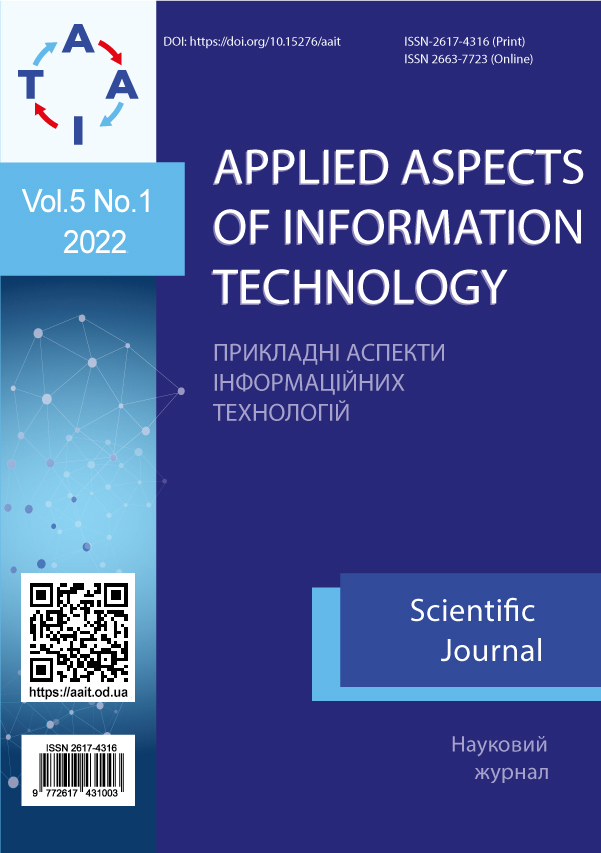Data normalization methods to improve the quality of classification in the breast cancer diagnostic system
Main Article Content
Abstract
In oncology diagnostic systems, images of cells obtained from breast biopsy are often identified by statistical and geometric features. To classify the values of these features, presented, in particular, in the Wisconsin Diagnostic Breast Cancer dataset, a naive Bayesian classifier, the k-nearest neighbor’s method, neural networks, and ensembles of decision trees were used in the literature. It is noticed that the classification results obtained with using these methods differ mainly within the limits of the statistical error. This is related to the selection of the classifier which is determined by the shape of the clusters and the presence of data outliers. They are significantly affected by data preparing, in particular, the method of normalization of the feature values. Normalization is defined as transforming the values of features to a certain interval. The difference in the intervals of feature values can lead to implicit weighting of features in their classification. After feature extraction and normalization, a set of data belonging to the same class may be divided into several clusters as a result of feature space distortion. To separate such data into one class, the distance between them must be greater than the internal scatter of data in each of the clusters. Therefore, in addition to normalization, data preparing can include decorrelation and orthogonalization of features, using, e.g., principal component analysis which selects feature projections with better class separation. So to improve the quality of classification, in the article the data preparation methods are used, namely data normalization methods and data analysis using principal components. It is shown that it is advisable to use the standard, robust, or minimax normalization of cell feature vectors if the k-nearest neighbor’s classifier or a naive Bayesian classifier is selected. If the classification of cell feature vectors in breast biopsy images was carried out using an ensemble of decision trees, the use of normalization did not improve the quality of the classification. It is advisable to reduce the dimension of the feature space by analyzing the principal components only for the k-nearest method. When using a naive Bayesian classifier and ensembles of decision trees, the transition to principal components reduces the quality of the classification. The results obtained in the article allow choosing the preparing data methods for a specific problem.



